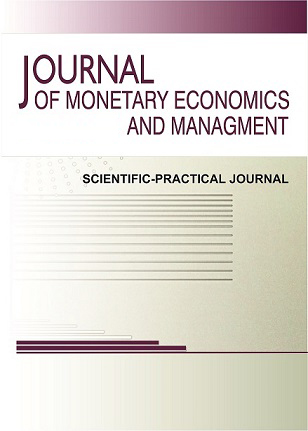employee
student
The reform of the housing sector in the Russian Federation through the development of low-rise construction is a strategically important step towards creating a sustainable and accessible urban environment. With a growing urban population, it is necessary to look for optimal solutions to improve the quality of life and housing affordability, which in turn contributes to social well-being. The role of the state in this process cannot be overestimated: support measures aimed at developing housing loans and reducing construction costs ensure an influx of investment and the creation of new jobs. Low-rise construction is becoming not only economically profitable, but also socially significant, contributing to the improvement of housing conditions for various segments of the population. The development of low-rise construction also contributes to the decentralization of urban infrastructure, reducing the burden on overloaded city centers. The creation of comfortable residential areas with developed social infrastructure, including schools, kindergartens, medical institutions and cultural facilities, allows for the formation of full-fledged communities with a high standard of living. At the same time, it is important to take into account the environmental aspects of construction, introducing energy-efficient technologies and using environmentally friendly materials. One of the key aspects of reforming the housing sector is improving the regulatory framework. It is necessary to simplify the procedures for obtaining construction permits, reduce administrative barriers and create favorable conditions for attracting private investment in low-rise construction. This will speed up the construction process and reduce the cost of housing, making it more accessible to a wider range of citizens.
: housing, government, economy, development, minimization
1. Abdrazakov R.I. Mnogokriterial'naya ekonomiko-matematicheskaya model' udovletvorennosti sprosa naseleniya na maloetazhnoe zhilischnoe stroitel'stvo v regione / R.I. Abdrazakov, E.G. Kravchenko // UPRAVLENIE EKONOMIChESKIMI SISTEMAMI. - 2012. - № 4. - S. 94-100.
2. Vinogradov A. P. Zakony, napravlennye na uvelichenie zhilischnogo stroitel'stva / A.P. Vinogradov // Zhil'e. – 2008. – № 16. – S. 12 -15.
3. Filyushina K.E., Kostov S.A. Nauchno-ekonomicheskiy analiz stroitel'stva maloetazhnyh domov s ispol'zovaniem sovremennyh materialov // Setevoy nauchno-prakticheskiy zhurnal. Prikladnye ekonomicheskie issledovaniya - 2024, №6. - S. 152-158.
4. Ministerstvo ekonomicheskogo razvitiya Rossiyskoy Federacii [Elektronnyy resurs]. – Usloviya dostupa: https://www.economy.gov.ru. (data obrascheniya: 10.02.2024).
5. Grushina O. V. Formirovanie mehanizma obespecheniya dostupnosti zhil'ya v RF v usloviyah social'no-orientirovannoy rynochnoy ekonomiki / O. V. Grushina, G. V. Homkalov. - EDN QAWWJF // Izvestiya Irkutskoy gosudarstvennoy ekonomicheskoy akademii. - 2013. – S. 54 - 56.
6. Shulekin A.N. Analiz izmeneniy zakonodatel'stva v sfere zhilischnogo stroitel'stva: perehod ot dolevogo stroitel'stva k proektnomu finansirovaniyu // Sibirskaya finansovaya shkola. 2018. № 4 (129). S. 34-37.









